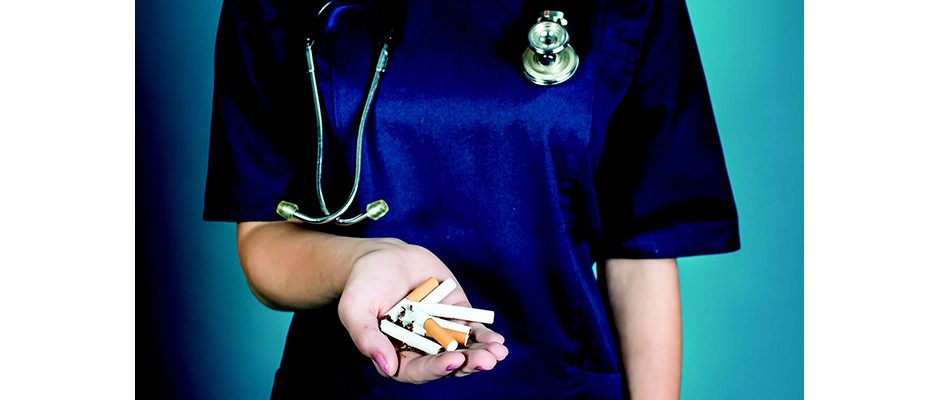
[Article written by Amanda Mulhern, manager of St. Peter’s Health Partners Community Health Programs.]
November 16 is the Great American Smokeout, an annual event sponsored by the American Cancer Society to raise awareness and encourage smokers to quit for just one day.
It is well-known that smoking cigarettes can cause serious health conditions, such as heart disease, asthma and lung cancer. But did you know that smokers, when compared to non-smokers, have a higher rate of surgery-related complications, such as wound infections, pneumonia and heart attacks?
If you are a long-time or heavy smoker, you may wonder if quitting right before an operation can really make a difference. In a word: yes. In fact, quitting even a few weeks before surgery, and staying smoke-free during recovery, can lower the risks of serious complications.
According to a joint study by the World Health Organization (WHO), the University of Newcastle, Australia and the World Federation of Societies of Anaesthesiologists (WFSA), there are three key reasons why the sooner you stop before the “op,” the better:
- Smoking increases the risk of heart and lung complications
The nicotine and carbon monoxide in cigarettes can decrease oxygen levels and damage the lungs, which increases the risk of heart- and lung-related complications during and after surgery. You are also at greater risk of developing pneumonia, blood clots and having a heart attack post-surgery.
- Smoking can increase the risk of anesthesia-related problems
Cigarette smoke contains more than 4,000 substances, some of which interfere with respiratory function both during and after anesthesia. Some also interfere with the metabolism of anesthesia post-surgery.
- Smoking delays healing and recovery
Reduced blood flow from smoking can delay healing, increasing the risk of infection at the surgical incision site.
Cannabis also interacts negatively with anesthesia. So, be honest when providing information during your pre-admission surgical interview. Providing accurate information about your cannabis use will help your anesthesiologist make sure you receive the best, safest care.
Of course, not everyone knows weeks in advance that they are going to need surgery. But, quitting even a day or two before an operation helps. It may be hard to believe, but within 12 hours your heart and lungs start to work better.
Quitting is hard and often takes many quit attempts. Even so, surgery is an ideal time to quit because you are probably already thinking about your heath and how to improve it. So, ready to quit for just one day? Talk to your doctor for help in quitting, today.
For information and support, including free nicotine replacement products such as patches or gum, call the NYS Smokers Quitline toll-free at 1-866-NY-QUITS (1-866-697-8487).
The Virtual Butt Stops Here is an award-winning smoking cessation program offered by St. Peter’s Health Partners. For details, visit https://www.sphp.com/health-and-wellness/community-wellness-programs/the-butt-stops-here.





